Vulnerable families in Uganda often find it hard to make ends meet. Many of the factors leading to this reality are self-made including laziness and alcoholism only to mention but a few, while others are beyond their making. Gender issues, negligence from local community leaders and government entities and a lack of grassroots support to upskill families in sectors like agriculture and environment all take their toll.
Agriculture and village life
Agriculture is an area that has determines the fate of many village dwellers. The entire livelihood scope of local people revolves on agriculture. The government has to provide the much-needed support but in most cases it’s slow in coming or totally unavailable. At this point, social organisations come in to bridge this wide gap. This is because in many cases, it is only after the deepest darkness that the greatest joy can come!
Case study: how S.A.L.V.E. is using its permaculture programme to help street-connected children and their families
Imamolu*, a kind and industrious young lad, landed at the S.A.L.V.E. site after being admitted from the streets of Jinja where he had gotten sick. He had earlier fled his home after his father decided to marry a second wife who was not in any way prepared to live with the children she had found in the home.
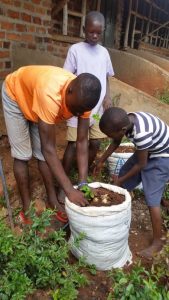 Imamolu fell in love with the permaculture programme and all the land development activities that were taking place at the time. This started with developing a vegetable nursery bed in which he participated with all his strength. His main interest was in the seeds that did not look like the plants they had been said to produce. He ended spending the first few days of the seeds’ development watching them to see how grew!
Imamolu fell in love with the permaculture programme and all the land development activities that were taking place at the time. This started with developing a vegetable nursery bed in which he participated with all his strength. His main interest was in the seeds that did not look like the plants they had been said to produce. He ended spending the first few days of the seeds’ development watching them to see how grew!
Imamolu ended up being the most active student of that season and he would organise the class and motivate the other students. He ended up playing the role of a co-teacher.
Imamolu was equally hardworking in gardening activities. When it came to the time of each child developing their own plot to produce vegetables from it, he stood out of the crowd. His garden consisting of carrots and leeks was wonderful.
Imamolu’s resettlement
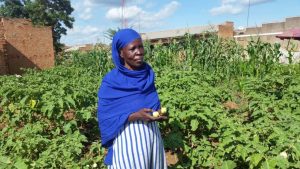 As the rehabilitation program advanced the time came for Imamolu to be resettled. At first this had proved really hard because he felt as if he needed to learn more skills.
As the rehabilitation program advanced the time came for Imamolu to be resettled. At first this had proved really hard because he felt as if he needed to learn more skills.
After some consultation he agreed to go live with his Auntie, who had some farm land, after being assured that the S.A.L.V.E. programme would extend to their home now that he was one of the most active students.
As short while after his resettlement, assessment visits occurred and the teacher found out that his home was fit to receive an extension of S.A.L.V.E.’s permaculture programme. This enabled the family to receive start-up items like seeds and tools.
The financial condition of the home was however not good. His Auntie had no choice but to work harder because her husband was not able to support the home as it was traditionally expected to be. This left them in a devastating condition because both incomes could not support the family as desired.
Young as he was, Imamolu was not concerned by these realities. He was eager to show them how his sustainable living formula could work out to change the family’s status.
A new way of life and a grocery shop
Imamolu’s optimism was well-founded. As we share this, the family has had their way of life overturned through Imamolu’s knowledge and support from S.A.L.V.E.’s permaculture teacher who carries out regular visits to oversee the developments at the home.
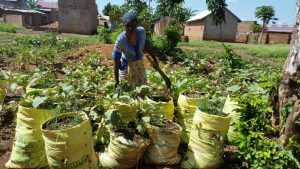 The family now boasts a home-based vegetable grocery shop with all the supplies coming from their garden. This includes vegetable crops like carrots, egg plants (aubergine), bulb onions and kale. This has helped them overturn their financial state.
The family now boasts a home-based vegetable grocery shop with all the supplies coming from their garden. This includes vegetable crops like carrots, egg plants (aubergine), bulb onions and kale. This has helped them overturn their financial state.
Imamolu is happy to have contributed to the family’s welfare and the parents are happy for such boldness and skill building in this young soul.
A sustainable future
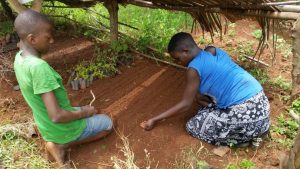
We believe that learning sustainable farming skills are vital for a world with an increasing population and changing climate.
Children at our site are learning skills in soil/water conservation, recycling and biodiversity improvement plus many other sustainable ways of managing the environment while protecting the world for future generations.
With more support, more children’s confidence can be built up to put them in position to better contribute to their families’ wellbeing. We hope that this programme will help to support families realise their potential, fight poverty and protect the environment through the implementation of sustainable land management.
S.A.L.V.E.’s permaculture programme in Uganda has been shortlisted for the Pemaculture magazine global prize the last two years. Read more about our work here.
*Names of children are changed in line with our child protection policy

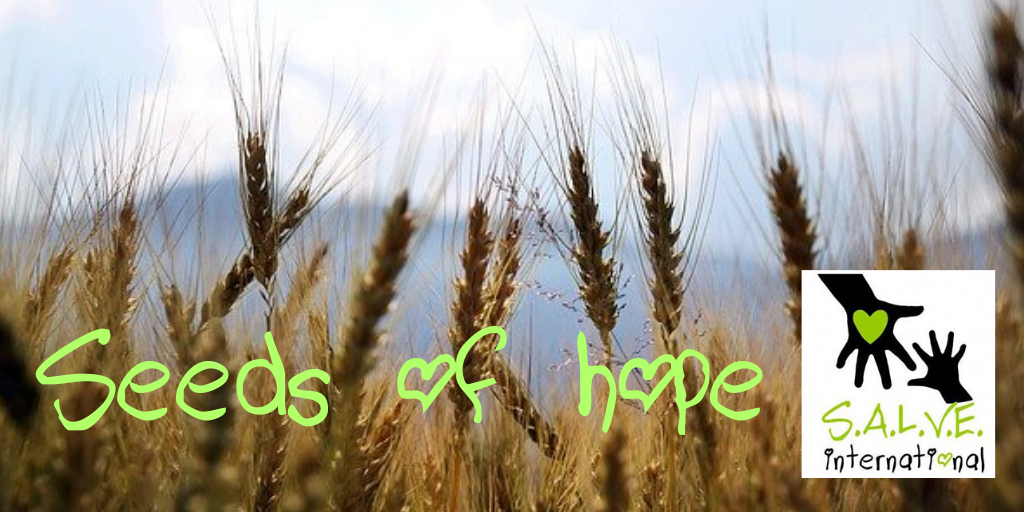
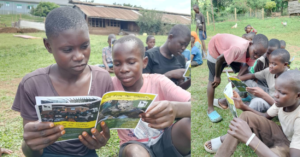
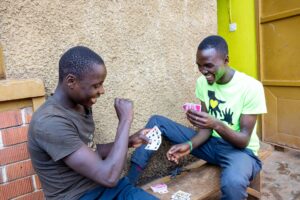
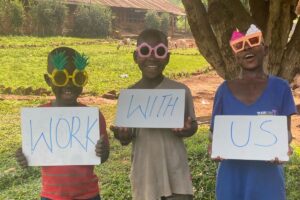
0 Comments